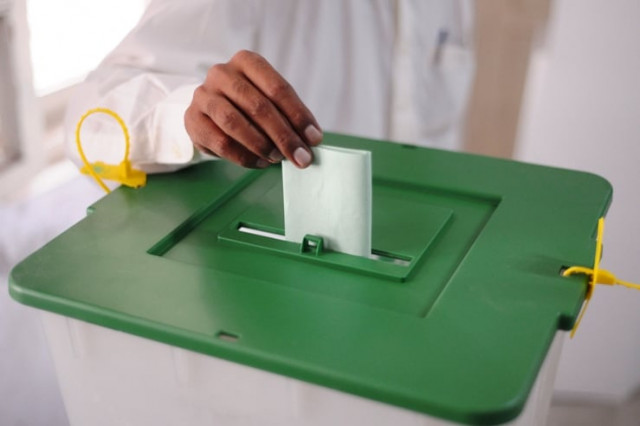Call for accountability amidst chaos
Identifying those responsible for alleged rigging on Feb 8 is deemed crucial

The resonance of Pakistan's 2024 elections has gone far beyond its borders, with regional and international media vehemently denouncing the process as exceptionally unfair, non-transparent, and heavily rigged in the nation’s history.
In the midst of this uproar, an informal alliance comprising the PTI, the JUI, the JI, the GDA and some other smaller groups has been mobilizing nationwide protests against the alleged rigging, adding another layer to an already complex and highly unstable political scenario.
The startling admission by the Rawalpindi division commissioner, Liaqat Ali Chatha, has introduced yet another layer of turmoil to the nation's precarious political landscape.
His shocking revelation of orchestrating large-scale election rigging, including addition of forged votes and manipulation of results, has sent shockwaves through the country.
Here a question emerges: if the commissioner’s avowal is true then why should only he bear the consequences while the alleged masterminds behind these machinations spanning dozens of national and provincial assemblies’ constituencies across the country remain untouched?
The responsibility for these shameless acts of election rigging squarely falls on the interim government, because its only mandate was to stay in power till a new government elected through a process of free and fair elections comes to power.
However, the motivations and driving forces behind such manipulations remain a puzzle which needs unravelling to shed light on the murky underbelly of Pakistan's political system.
Analyzing the power dynamics, the blame game unfolds across many potential bases of power: The Interim government, the Election Commission of Pakistan (ECP), the PML-N and the PPP, the Pakistan Telecommunication Authority (PTA), the establishment and the superior judiciary.
Despite the interim government's significant leverage over civil servants, it lacks the power to coerce them into such egregious acts of betrayal.
The ECP, often perceived as having authority over district returning officers (DROs), lacks the influence to prevent the civil administration from engaging in election rigging.
However, like these elections, many past elections have highlighted the ECP’s failure to incorporate mechanisms ensuring transparency in the polling and result tabulation process, demanding a thorough investigation.
Despite being granted legal powers and resources through comprehensive legislative mechanisms, the ECP consistently introduces so-called novel technology-based systems in every election, only to face repeated failures.
Following the 2018 RTS debacle, the much-anticipated Election Management System, designed to compile and transmit results promptly, also faltered in the February 8 elections.
Political powerhouses like the PML-N in Punjab, the PPP in Sindh, and the MQM-P in Karachi, known for their ability to foster loyalties, are considered insufficient to coerce the civil bureaucracy into committing crimes that could dangerously plunge the country into a civil strife.
The establishment, recognized for its independent actions, allegedly asserts dominance over civilian institutions, relegating them to inconsequential roles.
In weak democracies with a lack of public awareness and collective will, civilians find it challenging to enforce their authority over the armed forces, enabling the establishment to flout oaths and disregard constitutional limits.
The role of the superior judiciary, especially in cases with political ramifications, demands a thorough review. A glance at the judicial history of the last two decades reveals a pattern where court decisions impact the country’s political landscape. If the PML-N bore the brunt in 2018, the PTI suffered in 2024.
An investigation should also be launched to find out whether the internet infrastructure was adequately equipped for election-related communications and scrutinize consultations between the ECP and the PTA regarding online election system readiness.
Identifying those responsible for maintaining the integrity of internet services and holding them accountable for any lapses contributing to nationwide anxiety during elections is crucial.
Commissioner Chatha's admission of responsibility, deflecting blame from the real players, underscores the coercion faced by individuals and their families until they capitulate.
A comprehensive investigation is imperative to restore public confidence in Pakistan’s electoral infrastructure. Yet, a looming question is who will conduct such an investigation in a country where serious national crimes are often swept under the carpet?
Political parties victimized in one election become integral to maneuvering in the next, perpetuating a vicious cycle. The influential ruling class continues to thrive at the expense of the suffering masses who cast their votes, while ordinary political workers endure hardships, hoping for a better future.
However, this status quo cannot persist indefinitely. Reflecting on the debacle of 1971 and enduring crises over the past decades, the country grapples with economic stagnation, a burgeoning population, and serious environmental threats without foreseeable solutions. A transformative shift is needed for a better future, challenging the prevailing narrative and steering Pakistan toward lasting change.



















COMMENTS
Comments are moderated and generally will be posted if they are on-topic and not abusive.
For more information, please see our Comments FAQ